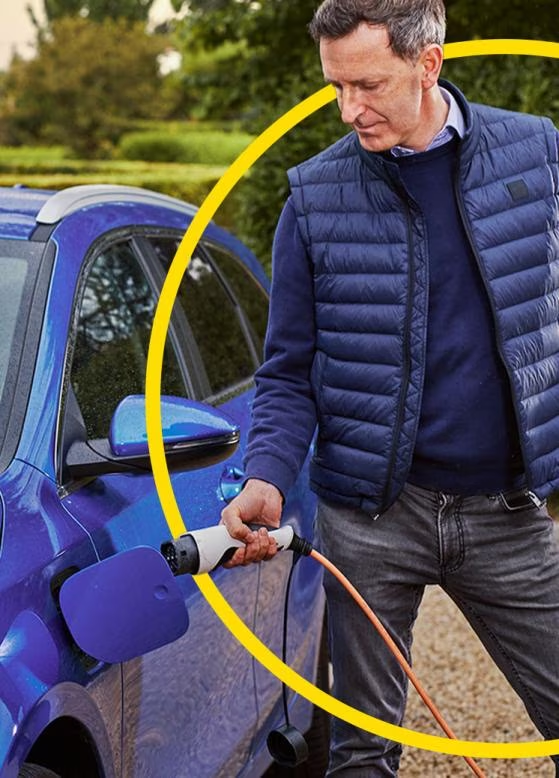With the European Parliament having agreed to effectively ban the sale of new petrol and diesel cars across the EU (European Union) by 2035, it is fairly established now that electric cars are not just a passing technological fad. The writing is on the wall for the combustion-powered car over the next decade or so, meaning that more and more of us will be driving electric cars in the not-too-distant future.
EVs present their own set of problems for buyers though, one of the big ones being that they’re still quite expensive compared to their petrol- and diesel-powered equivalents, largely due to the increased manufacturing and raw material costs of batteries. Some car makers estimate that it may be as late as 2028 by the time EVs reach price-parity with Combustion-engine models. That poses obvious issues for those who, whether for financial or environmental reasons, want to make the switch, but who can’t stretch to a brand-new EV.
Until now, the used electric car market in Ireland has been minuscule with little choice for buyers beyond a handful of models. While it’s still small compared to the number of combustion-powered cars for sale, it is growing and will continue to grow as the leases and PCP deals on all the electric vehicles sold in the past three or four years come to an end.
So, with a more substantial used electric car market beginning to emerge, could now be the right time to start looking for a second-hand EV, or should you even really consider buying a used EV at all?
Will an EV suit my lifestyle?
One of the questions any potential used EV buyer needs to ask themselves is the same as the big one that anyone buying a new electric car also needs to ask: will this car actually suit me?
If you live in a flat or terraced house and can’t charge at home, or if you regularly pound the length and breadth of Ireland’s road network, then maybe an EV (and especially an older EV that may not have the same long range as newer models) might not be for you.
For anyone buying an electric car, it’s important to carefully consider how it’ll fit into your lifestyle and use profile. If you don’t cover significant mileage, it may be a case that it’s still more financially sustainable to buy a cheaper combustion-powered model rather than financing an electric car.
What about battery health?
In the first half of the last decade, there was a lot of fear that batteries wouldn’t last and would need replacing after just a few years. There was some real cause for concern too — it was common to hear of some brands, with ranges depleted to less than 100km due to regularly operating in high- or low-temperature environments.
Thankfully, time has proven that batteries don’t degrade as quickly as had once been thought and the current estimate is that EV batteries lose about two percent of their storage capacity per year. Most new electric cars will actually come with at least an eight-year battery warranty (longer than that for the rest of the car), which guarantees that it will retain at least 70 or 80 percent of its original capacity over that period. This should provide some reassurance to those with lingering concerns over battery longevity.
It’s a good idea to keep that two percent per year loss of capacity rate in mind if inspecting a used EV; if the battery capacity seems too low for the age of the car it may be a red flag and could indicate problems with the battery cells or that the previous owner was not especially careful about charging.

Will I have to replace my battery?
Probably not. Batteries are incredibly expensive and even for less expensive EVs, a replacement can run to nearly €10,000. If your battery does develop a problem or won’t hold a charge properly, it’s more likely to be an issue with an individual cell which can, luckily, be replaced separately. It’s far from cheap, but it’s a lot less expensive than replacing a whole battery pack. In the very unlikely event that your battery is absolutely worn out, the chances are it’ll be under warranty anyway.
Are EVs expensive to service and maintain?
While it’s true that the average mechanic probably won’t be able to fully service a new EV, they’re simpler and usually less expensive to maintain than a combustion engine car. EVs have many fewer moving parts than other cars so they don’t require oil or filter changes in the same way. It’s still advisable to keep an eye on your own car and have it professionally inspected annually as things like brakes, tyres and suspension components can become worn out just like any other car’s.
Those buying a used EV may want to hold onto their car longer than the average three- or four-year term of a new model, so maintaining their battery health may be more of a concern. The best approach is to let the charge drop to not much lower than 20 percent power before charging up again. If you’re using a public rapid DC charger, try to top up to 80 percent capacity rather than fully charging the battery. It’s better to do a full charge from a slower 7.4kW or 11kW AC charger, such as a home wallbox.
Is there anything else worth considering when buying a used EV?
Beyond battery health and the condition of the high-voltage cabling, exactly the same caveats apply when buying a used EV as when buying any other type of car. A vehicle history check is a must to look for outstanding finance and to flag up any issues in the car’s past. A thorough all-round check is important too to look for signs of accident damage and neglect, and it’s worth spending some time sitting in the car making sure that all buttons, switches, screens and electrical devices are working properly.
